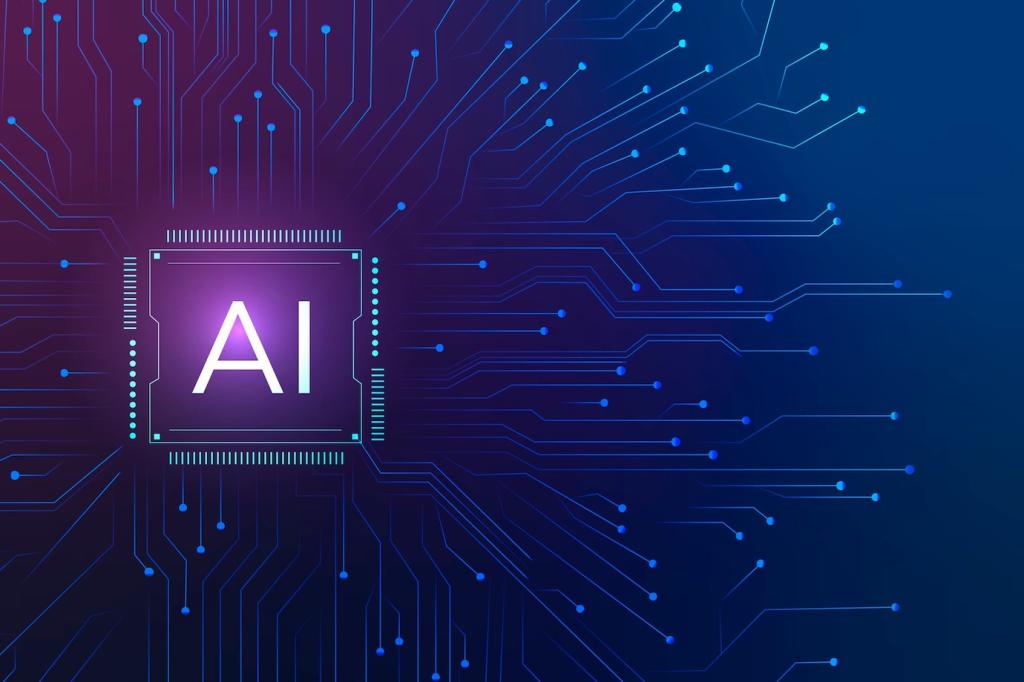
AI-Powered Learning: Revolutionizing Educational Experiences
AI-powered learning stands at the forefront of modern education, transforming the way students, teachers, and institutions approach knowledge and skill acquisition. Integrating sophisticated artificial intelligence technologies into the classroom has opened doors to unprecedented personalization, efficiency, and engagement. As AI continues to evolve, it promises to redefine educational experiences, making learning more adaptive, inclusive, and future-oriented.
Personalized Learning Journeys
01
Adaptive Curriculum Design
Adaptive curriculum design leverages AI to continually assess a student’s progress and understanding in real-time, adjusting content difficulty and presentation style accordingly. By identifying areas where learners struggle or excel, AI prompts timely interventions, suggesting additional resources or accelerated paths. This adaptability ensures that every student experiences neither boredom nor frustration, unlocking their fullest potential by meeting them exactly where they are in their learning journey.
02
Intelligent Feedback and Assessment
AI-powered systems provide instant, nuanced feedback on assignments, quizzes, and projects. Unlike standard grading systems, AI can evaluate both objective and subjective responses, offering detailed explanations and suggestions for improvement. This immediate and personalized feedback closes learning gaps swiftly, fostering a growth mindset and encouraging learners to engage deeply with the material, rather than being deterred by delays or generic responses.
03
Goal-Oriented Learning Paths
With AI, educational objectives can be tightly aligned with individual student aspirations, interests, and future career prospects. Recommendation engines analyze academic performance, extracurricular interests, and market trends to guide learners toward relevant topics and skills. This goal-oriented approach ensures that education is both meaningful and directly linked to real-world opportunities, inspiring students to take ownership of their progress.
Intelligent Virtual Assistants
Within virtual classrooms, AI-driven assistants now play a pivotal role in supporting learners and educators. These digital aides help answer questions, facilitate group discussions, and provide clarification on lecture materials in real-time. By handling repetitive or administrative queries, virtual assistants free up teachers to focus on higher-level instruction and individualized support, enhancing the overall learning experience.
Real-Time Language Translation
One transformative feature of AI in virtual classrooms is real-time language translation. AI tools instantly convert spoken or written content into students’ native languages, breaking down language barriers and enabling global discourse. This technological breakthrough enables truly inclusive classrooms, promotes cross-cultural understanding, and gives students from diverse backgrounds equal opportunities to participate and learn.
Dynamic Content Generation
AI-powered content generation tools can create interactive simulations, tailored readings, and multimedia experiences on demand. Instructors can draw on vast educational databases and customize materials for specific cohorts or topics, while AI ensures content is up-to-date and engaging. This innovation injects vitality into virtual lessons, capturing student attention and deepening comprehension through multi-sensory learning experiences.
Intelligent Tutoring Systems
AI tutoring systems excel at monitoring student progress through continuous diagnostics. Every interaction, answer, or hesitation is logged and analyzed, allowing the system to identify misconceptions and knowledge gaps the moment they occur. Students benefit from timely, targeted interventions, which adapt in complexity and format to suit their evolving needs, ensuring effective and uninterrupted learning.
Data-Driven Insights for Educators
Predictive Performance Analytics
AI-driven tools synthesize historical and real-time data to predict student performance across assessments and skill domains. Early warning systems alert educators to students who may be at risk of falling behind, while highlighting successful teaching interventions. Timely responses ensure tailored support, optimized lesson planning, and targeted resource allocation, maximizing educational success for all.
Curriculum Optimization
With access to granular learning data, AI enables ongoing optimization of school and classroom curricula. By analyzing what content and activities resonate most effectively, educators can adjust lesson structures, remove ineffective components, and introduce new approaches that better engage students. This iterative, data-driven process keeps education relevant and responsive to evolving student needs.
Enhanced Teacher Development
AI platforms also support teacher professional growth by tracking performance, suggesting personalized development paths, and simulating challenging classroom scenarios for practice. Armed with feedback on teaching methods and student engagement, educators can refine their craft, embrace innovative pedagogies, and remain at the forefront of educational excellence.

Previous slide
Next slide

AI-driven personalization means games can adjust their scenarios, challenges, and rewards to fit each student’s learning trajectory. This ensures that every learner is challenged at the right level, making academic progress intrinsically motivating. As students overcome tailored obstacles and celebrate success, their connection to the subject deepens, and their skills grow organically.
Gamification and Engagement
Real-World Skill Development
Simulation-Based Training
Simulations powered by AI offer hands-on practice in life-like scenarios, helping learners master practical skills across fields like medicine, engineering, and business. These virtual experiences provide a safe environment to experiment, make mistakes, and apply theoretical knowledge—preparing students to face real-world challenges with confidence and expertise.
Automated Skill Assessment
AI tools can objectively evaluate complex skills, such as problem-solving, communication, or collaboration, through analysis of project work, discussions, and simulations. Automated reporting tracks progress against both academic standards and workplace benchmarks. This level of insight helps students understand their strengths and areas for growth as they prepare for professional environments.
Career-Aligned Learning Recommendations
AI systems analyze labor market demands and individual aptitudes, guiding students towards subjects and skills with high relevance and growth potential. Recommendations are tailored to align educational experiences with career aspirations, ensuring that learning investments yield tangible returns in employability and personal fulfillment.
